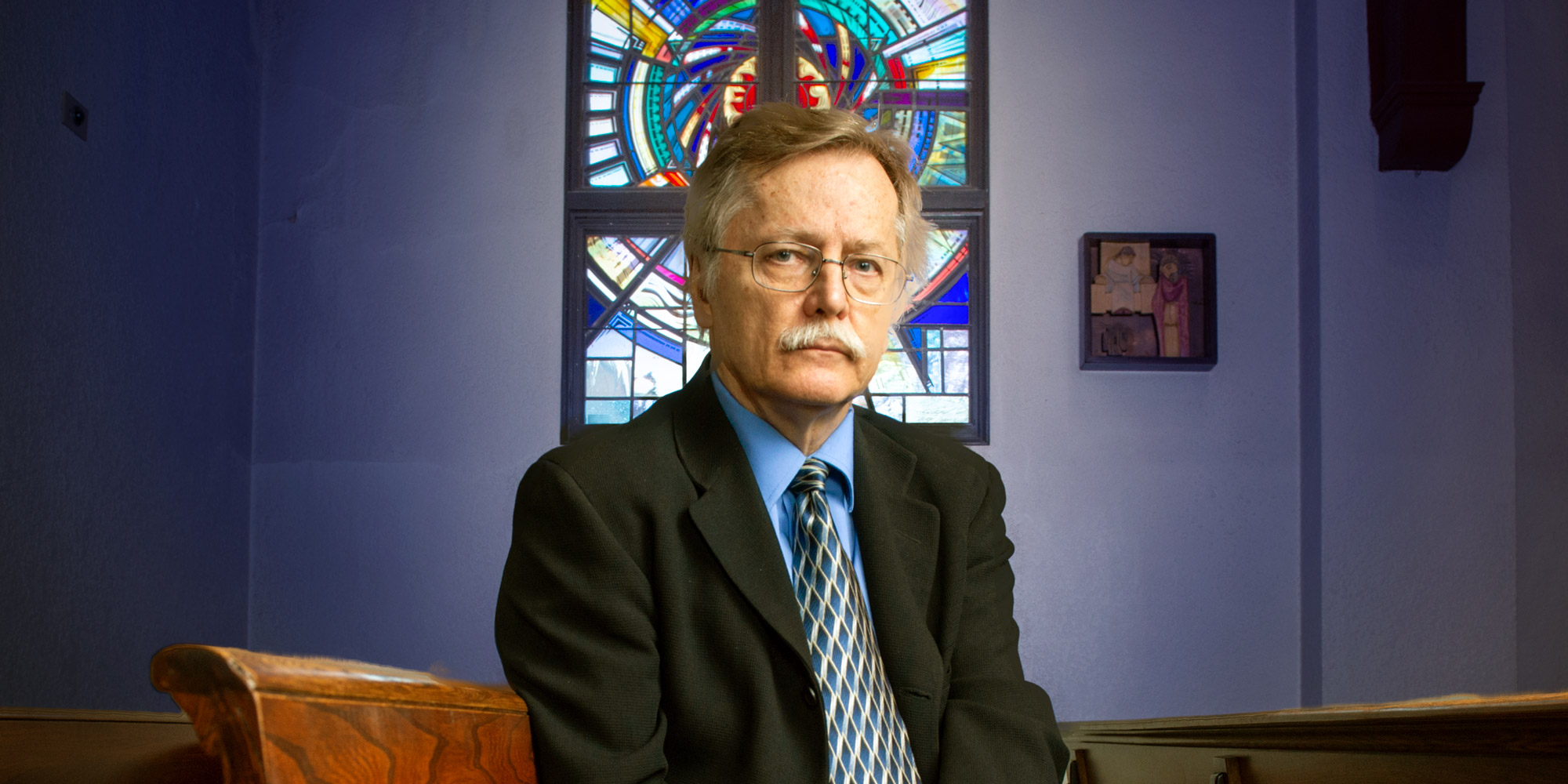It took Denis Lamoureux 13 years and four graduate degrees to accept his first biology lesson.
In the early 1990s, Lamoureux was a University of Alberta doctoral student studying dental development and dental evolution, secretly hoping to debunk evolutionary theory because he felt it conflicted with Christianity. Up to his teeth in fossil records and developmental science, he took a deep breath and another hard look at the evidence.
"All of a sudden, before my candidacy exam, it just became so clear to me that all life is the same molecule set, with various twists," Lamoureux said. "I had to go do a PhD to figure this out."
Now a professor of science and religion at St. Joseph's College, Lamoureux teaches hundreds of U of A undergraduates every year how to avoid ideological triplines. He isn't shocked that a growing number of Canadians are losing trust in science. Polarized public debates and a proliferation of online misinformation are pushing more people into false dichotomies, Lamoureux said. The bottom line hasn't changed: when politics, beliefs or morality is at stake, science can become collateral damage.
"Former students say it all the time, I can't believe how dichotomized the culture is," said Lamoureux. "You can't trust paleontologists, you can't trust evolutionary biologists. If you've got that mindset, you know it's a short step away to say you can't trust climate change."
Science means many things
U of A sociologist Stephen Kent agrees that a lot more is going on than just the difficulty of communicating complex subject matter.
The scientific method is built on repetition, yet funding tends to favour innovation and novelty. High-profile retractions can further erode public trust. Then there are the opportunistic lobbyists, politicians and marketers who leverage or attack scientific credibility to suit their own interests.
"Science is a human endeavour," said Kent. "And as a human endeavour, it's subject to pressures and influences that occur through life."
There are also difficulties translating scientific claims for a wider audience. Attention-grabbing headlines can overstate the implications of a particular study. Journalists might pit legitimate experts against less credible detractors. Skepticism can start as a healthy check, but Kent says it can become difficult to keep it in proportion. That's even before science clashes with other firmly held beliefs.
Kent points to the research of Dutch psychologist Bastiaan Rutjens, who links scientific skepticism with four operating frameworks: politics, religiosity or spirituality, morality and scientific literacy. Each belief provides explanation and meaning, yet can also evolve into different species of scientific skepticism. While it's common that a Christian like Lamoureux is skeptical of evolution, someone who values scientific literacy might spurn genetically modified foods.
"It's not necessarily the case that someone with more knowledge about science will always come out on behalf of science," Kent said. "Issues of morality and ideology interweave with these things."
Having spent decades studying cults and new religious movements, Kent says the complexity of the information we process can leave us susceptible to misunderstanding. Individuals can fall prey to "social encapsulation," getting slowly nudged into an ideological system without even realizing it. In the world of algorithms, subreddits and a proliferation of news sites, it's easier than ever to overlook the things that challenge our fundamental beliefs.
"That's what happens in cults," Kent said. "You can fill your few hours in the day with information that reinforces itself. In that cocoon, it's easy to believe you're informed, thoughtful, you're talking to people who are intelligent, when in fact you're being duped."
Living with ambiguity
It often takes Lamoureux's students years to reach a detente in their personal struggle with science. It's not easy to compress 13 years of grad school into a 13-week semester.
As students move from high school to university, formative beliefs are challenged at every turn, Lamoureux says. Having completed doctorates in both science and theology, Lamoureux tries his best to serve as a guide. He teaches his students about the complexity of biblical interpretation, how different theorists understand the relationship between science and religion, or how Charles Darwin himself was often ambivalent about questions of faith.
He's up front with students about the fact that he still attends an evangelical church, believing that his ability to worship is a gift of the evolutionary process. Lamoureux says that nearly nine out of 10 students leave with a more nuanced understanding of science and religion, and some of those experience startling transformations. If a student realizes they can't read a Bible like a hydraulic engineering textbook, Lamoureux is happy. One student walked in believing the world is 6,000 years old and will soon graduate with a PhD in evolutionary biology. Other students recognize how scientific language can be abused to make sweeping metaphysical claims. He's also proud of agnostics and atheists who refuse simplistic leaps between science and metaphysics.
Evangelical Christians will ultimately embrace evolutionary biology, Lamoureux believes, much like believers eventually accepted a Copernican revolution at odds with biblical language of the rising and setting sun. In a world full of dichotomies and contradictory ideologies, he's convinced scientific distrust will be with us for the foreseeable future. He's trying to do his part to help students figure it out.
"It's about developing a healthy relationship between science and religion," he said. "I don't think you necessarily have to be religious to do that."
